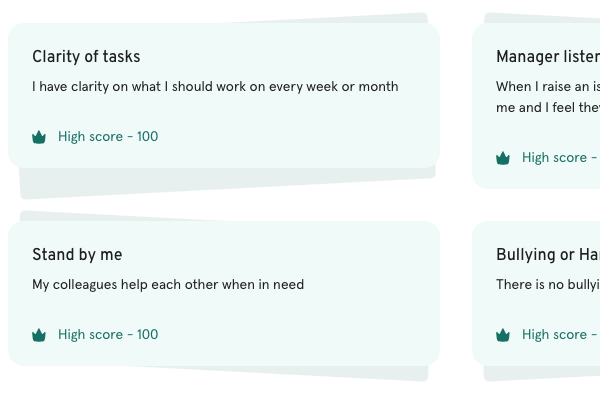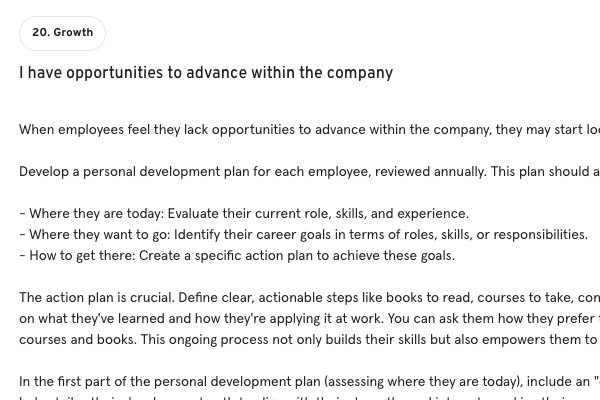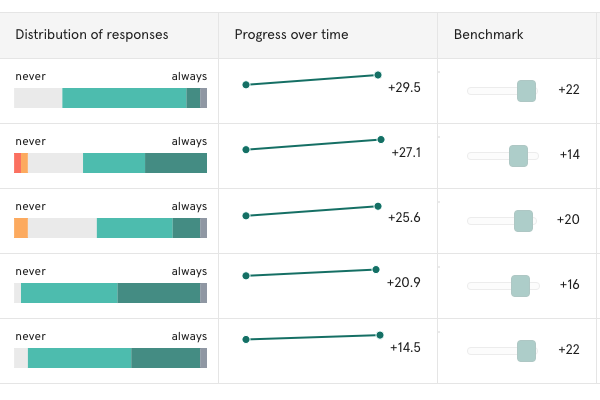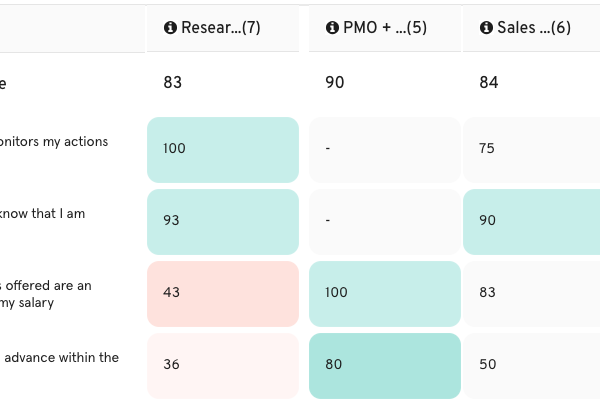Close the gap between performance and potential by building a high-performance culture
High-performing teams don’t just happen. They’re shaped by deliberate choices, consistent habits and more importantly knowing what stands in the way of high performance. What’s holding your people back from bringing their best selves to work? What’s holding your teams back by from doing their best work?





no credit card required
Trusted By








Your people are your biggest asset. But they are also your biggest point of failure
If your entire team was working at its full potential, how much better would your business be? Companies with a winning culture generate five times the total shareholder return.
But if you ask your people they’ll tell you what you want to hear. Surveys lie. Feedback gets filtered. Leaders are flying blind. The real problem? People issues are often invisible until performance drops, key people leave, or your hiring struggles.

no credit card required
Close the gap between performance and potential


Close the gap between performance and potential
Build a high performance culture
Rethink Culture flips the script. Instead of asking people how they feel, we observe what they do. We help you spot the hidden behaviours holding your people back.
By shifting the right habits, we close the gap between how your teams are working today and what they’re truly capable of.
The result? A high-performing culture that drives real business results.

Turn Instinct into Data

Communication toolkit for your staff

Shift the right habits with recommendations, on-demand workshops, coaching and training
What our Customers Say







no credit card required


We're on a mission to
help one million
companies create a
healthier, more fulfilling
culture at work
Too many businesses prioritise performance above people, treating people as resources. We believe in creating intentional cultures, that put people on an equal priority to performance. We believe culture should serve the needs of the people, so that people can serve the needs of the business. We believe in creating fulfilling workplaces, where people are the happiest, where work gives people energy and meaning.
As Trey Taylor says, “Those CEOs who mire themselves in the day to day minutiae of the business, never get to experience the state of flow that comes from a high functioning culture. The roots of culture touch every corner of your business. When culture thrives, you attract talented people who perform exceptionally on behalf of the business. Which in turn, drives positive growth in your numbers. When a company’s culture is broken, your best people move on to other opportunities, and the people who stay are unlikely to act in the business’s best interests.”
The Leaders of businesses people love to work for
Virtually all of the business leaders who make headlines today do so because of their company performance – they measure their success in dollars. It’s time we shine the spotlight on the leaders who are succeeding because there are creating fulfilling workplaces, where people are the happiest, where work gives people energy and meaning




